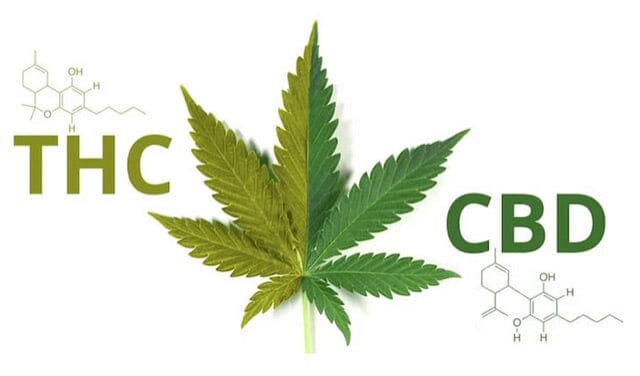
Clearing the Air: Does CBD Contain THC?
CBD, or cannabidiol, has become increasingly popular for its potential therapeutic effects. However, there is often confusion surrounding the relationship between CBD and THC, another compound found in cannabis. Many people question whether CBD contains THC and if they will experience any psychoactive effects as a result. In this blog, we will explore the relationship between CBD and THC to shed light on any misconceptions.
Understanding CBD and THC:
CBD and THC are both cannabinoids present in the cannabis plant, but they have distinct differences. THC, or delta-9-tetrahydrocannabinol, is primarily responsible for the psychoactive effects associated with marijuana. It is this compound that induces a "high" sensation. In contrast, CBD is non-intoxicating and does not produce psychoactive effects.
Legally permissible THC levels in CBD products:
In most regions, CBD products derived from hemp must contain less than 0.2% THC to be considered legal. This trace amount of THC is not enough to induce psychoactivity or cause any significant intoxicating effects. It is important to note that CBD products obtained from marijuana may contain higher levels of THC, potentially leading to psychoactive effects.
Full-spectrum, broad-spectrum, and CBD isolate:
When it comes to CBD products, there are three main types to consider: full-spectrum, broad-spectrum, and CBD isolate. Full-spectrum CBD products contain all naturally occurring compounds found in the cannabis plant, including THC. However, the THC content is within the legally permissible range and is generally considered safe for consumption. Broad-spectrum CBD products, on the other hand, contain other cannabinoids and natural compounds found in cannabis, but THC is typically removed or reduced to non-detectable levels. CBD isolate products contain pure CBD, with no other compounds present.
Effects of CBD with trace THC:
Although CBD products with trace amounts of THC are highly unlikely to cause intoxication, some individuals may still be concerned about potential side effects. It is important to note that the presence of THC does not nullify the potential benefits of CBD. In fact, studies suggest that CBD and THC may work together synergistically to enhance therapeutic effects through what is known as the "entourage effect."
Conclusion:
In conclusion, CBD generally does not contain enough THC to produce psychoactive effects. Legal CBD products derived from hemp contain less than 0.2% THC, which is not enough to cause intoxication. However, it is essential to be aware of the THC content and choose products from reputable sources that adhere to legal guidelines. If you have concerns about THC, consider opting for broad-spectrum or CBD isolate products, which contain little to no THC. As always, it is recommended to consult with a healthcare professional before incorporating CBD products into your routine.
Understanding CBD and THC:
CBD and THC are both cannabinoids present in the cannabis plant, but they have distinct differences. THC, or delta-9-tetrahydrocannabinol, is primarily responsible for the psychoactive effects associated with marijuana. It is this compound that induces a "high" sensation. In contrast, CBD is non-intoxicating and does not produce psychoactive effects.
Legally permissible THC levels in CBD products:
In most regions, CBD products derived from hemp must contain less than 0.2% THC to be considered legal. This trace amount of THC is not enough to induce psychoactivity or cause any significant intoxicating effects. It is important to note that CBD products obtained from marijuana may contain higher levels of THC, potentially leading to psychoactive effects.
Full-spectrum, broad-spectrum, and CBD isolate:
When it comes to CBD products, there are three main types to consider: full-spectrum, broad-spectrum, and CBD isolate. Full-spectrum CBD products contain all naturally occurring compounds found in the cannabis plant, including THC. However, the THC content is within the legally permissible range and is generally considered safe for consumption. Broad-spectrum CBD products, on the other hand, contain other cannabinoids and natural compounds found in cannabis, but THC is typically removed or reduced to non-detectable levels. CBD isolate products contain pure CBD, with no other compounds present.
Effects of CBD with trace THC:
Although CBD products with trace amounts of THC are highly unlikely to cause intoxication, some individuals may still be concerned about potential side effects. It is important to note that the presence of THC does not nullify the potential benefits of CBD. In fact, studies suggest that CBD and THC may work together synergistically to enhance therapeutic effects through what is known as the "entourage effect."
Conclusion:
In conclusion, CBD generally does not contain enough THC to produce psychoactive effects. Legal CBD products derived from hemp contain less than 0.2% THC, which is not enough to cause intoxication. However, it is essential to be aware of the THC content and choose products from reputable sources that adhere to legal guidelines. If you have concerns about THC, consider opting for broad-spectrum or CBD isolate products, which contain little to no THC. As always, it is recommended to consult with a healthcare professional before incorporating CBD products into your routine.

Leave a comment